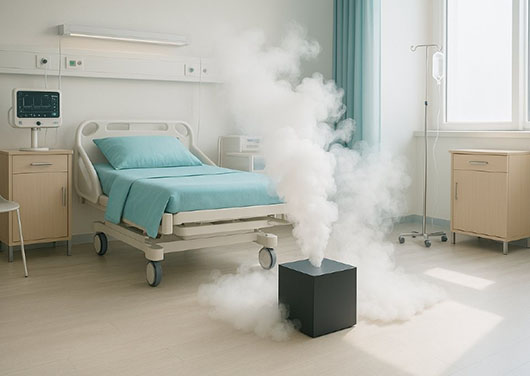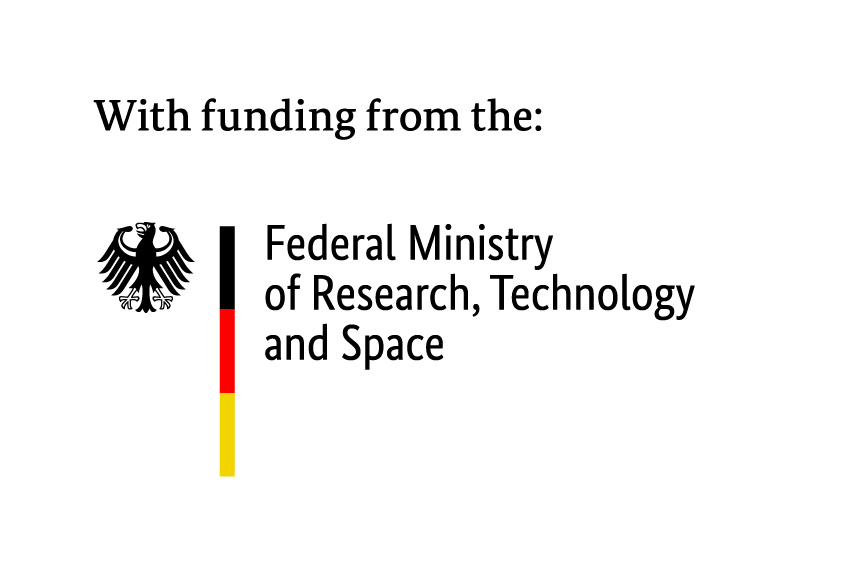Plasma systems for rapid room disinfection


Fast room disinfection can break chains of infection
The global spread of the SARS-CoV-2 coronavirus has highlighted the urgent need for effective and flexible methods of disinfecting rooms. Disinfecting areas where infected patients have been treated or transported can help to prevent the transmission of infectious pathogens to other people. Room disinfection can help to break chains of infection and is therefore an important part of disease control.
Compact plasma system for room disinfection
In the MoPlas2Dekon-PRO lighthouse project, a compact plasma system for room disinfection was further developed and optimized in cooperation with partners from science (Fraunhofer IVV, Ruhr University Bochum RUB), industry (Plasmatreat GmbH, Knestel Technologie & Elektronik GmbH) and the emergency services (Bavarian Red Cross BRK). The final development stage was tested for its handling and practicality in realistic disaster exercises.
Disinfection performance of the mobile plasma system under different conditions
In the sub-project at the Fraunhofer IVV, the mobile plasma system developed by the company Plasmatreat GmbH was examined with regard to disinfection performance and practical suitability. In particular, the achievable virucidal, bactericidal and sporicidal effect was quantitatively evaluated using germ carrier tests in a model room (office container) by varying various parameters. In addition to the surfaces used, the positions of the germ carriers in the room, the duration of treatment, additional organic loads and the room climate were also varied. It was found that a reduction of Bacillus atrophaeus endospores by more than 4 powers of ten can be detected on smooth surfaces (e.g. PET film, aluminum carriers) within just 30 minutes at high humidity (>80% RH). Inactivation of bacteriophages MS2 and Staphylococcus carnosus by more than 5 powers of ten was also possible under otherwise identical conditions when the microorganisms were dried in bovine serum albumin solution (0.3 g/L) on the microbial carriers. The ozone concentration in the model room with a volume of 30 m³ reached values of 0.2 g/m³ within 30 minutes. Stone floors, PVC floors and fabric coverings could also be effectively decontaminated. On untreated wood, however, only a slight microbicidal effect was observed. The model room, including the electrical equipment, did not show any damage after the numerous room disinfection tests. However, in the case of metals without corrosion protection and certain plastics (especially PU and rubber), material changes must be expected after repeated intensive exposure.
A largely automated, compact plasma system for room disinfection can make a significant contribution to preventing the spread of novel pathogens by efficiently disinfecting contact surfaces and the room air. The results from the MoPlas2Dekon-PRO project thus directly serve to protect society and increase civil security.
Project term: |
2022 to 2025 |
Project management/ funding: |
VDI/VDE Innovation + Technology GmbH / Federal Ministry of Research, Technology and Space BMFTR |
Funding programme: |
BMFTR programme "Innovationen im Einsatz – Praxisleuchttürme der zivilen Sicherheit" |
Funding information: |
The project is funded by the Federal Ministry of Research, Technology and Space (BMFTR) under the funding code 13N16321. |
Project partners: |
Plasmatreat GmbH (coordinator), KNESTEL Technologie & Elektronik GmbH, Ruhr-Universität Bochum chair for applied electrodynamics and plasma technology, Bavarian Red Cross (BRK) |
Associated partners: |
Bundesanstalt Technisches Hilfswerk, Federal Office of Civil Protection and Disaster Assistance |
Previous project: |
Mobile plasma technology to reduce biological hazards (2016 to 2019) |
 Fraunhofer Institute for Process Engineering and Packaging IVV
Fraunhofer Institute for Process Engineering and Packaging IVV